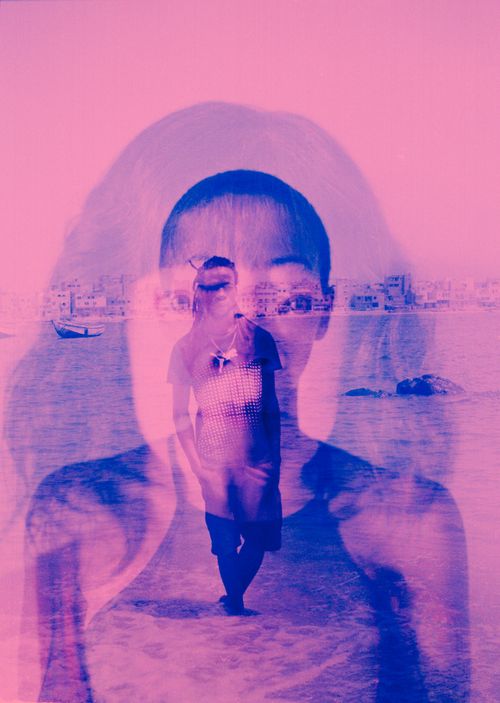I am not a doctor, but for more than a year, I have been traveling the world and listening to strangers’ hearts. This experience has had such a deep impact on me, that now, when I can't sleep, I take out my digital stethoscope and listen to my own heart. It almost instantly calms my anxiety and chases away the monsters that still hide under my bed or in the dark shadow of my mind.
This project was born out of a failed love story. I listened to his heart in a cheap hotel in Normandy. I thought he was the one. The relationship never fulfilled its promises of love, children and ever after, but instead, led me on the most fantastic journey of my life--listening and recording people's hearts.
A lot of people have asked me, why? I’ve answered this question with various answers. Why am I listening to people's hearts? The most honest response I can give came to me recently--listening to someone's heart has a soothing and calming effect. It creates a very intimate, sincere, and unconventional connection to someone else. Listening to someone's heart creates honest conversations, and lets me briefly explore a stranger’s very different experience of life.
So far, I have worked in 6 countries, and over 120 people have given me their unique pulse (no individuals have the same heartbeat). I am currently working with a composer to put all these hearts beating together on the same soundtrack, as if everyone was in the same room. I am trying to create a new language, rooted in the cardiac rhythms of hundreds of people, and freed from concepts of class, religion, or ethnicity. The difference between each one of us is the common denominator of this project, where hearts can resonate together.
I am not a scientist, but recently, trying to make sense of how I feel when I listen to someone’s heart or even my own heart, I discovered the work of Dr. Lee Salk. A prominent 20th century child psychologist, he believed it was possible "that human beings may be 'audio imprinted' with the heartbeat rhythm prior to birth," while in utero. I have explored data and research on the impact of heartbeat sounds on newborns and how it may speed up their development. This research describes how premature babies who are exposed to recordings of their mothers’ hearts and voices in an incubator have lower heart rates, gain weight faster, and fall asleep more easily.
All of this leads me to the current global situation. I have been thinking of all the people who are dying alone around the world. Each community has their death rituals--they are essential moments of passage that help us make sense of this ultimate journey in the unknown, yet as I write, most of these rituals have had to be canceled. A large number of the people who are leaving us, our elders, are the ones who built our world. People are dying alone, far from their loved ones.
There are very few ways to approach death with the sensitivity required. For weeks now I’ve been thinking, what if I could, with the support of families and the medical system, record the heartbeats of people in intensive care and send it to their loved ones? What if I could include them in my project and create a symbolic space where their hearts continu to beat on a soundtrack, next to a multitude of strangers, outside of any time frame. And maybe one day, when all of this will be behind us, we could all gather together and listen to their hearts beating, alongside those of younger generations. What if hearing their hearts alongside those of the living, would sooth our collective anxiety and help us get rid of the monsters hiding in the shadow of our shared memories.
